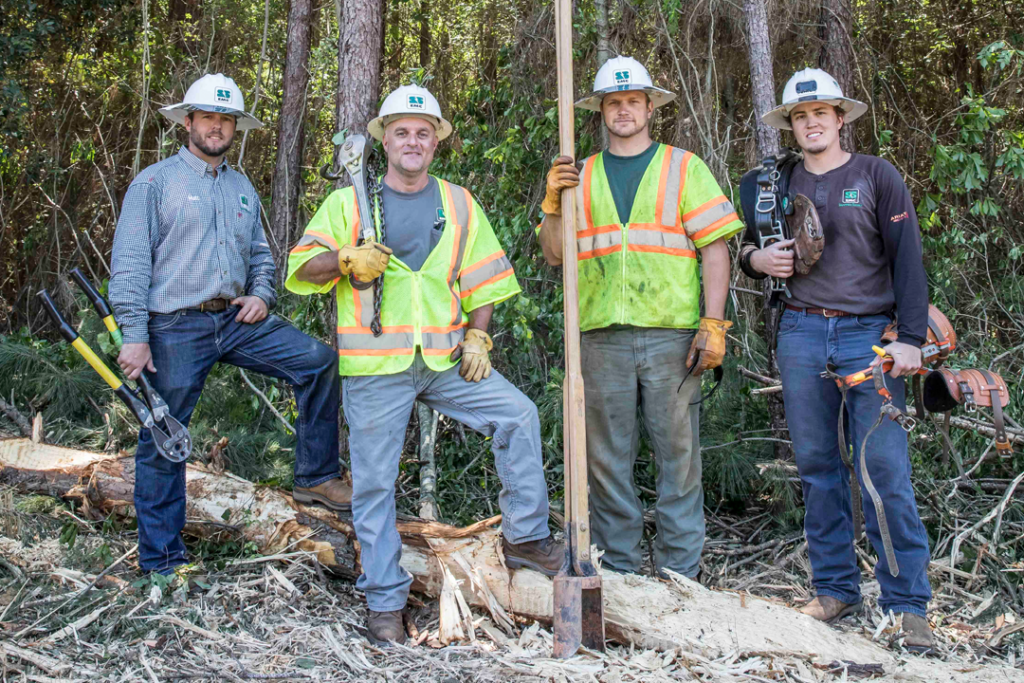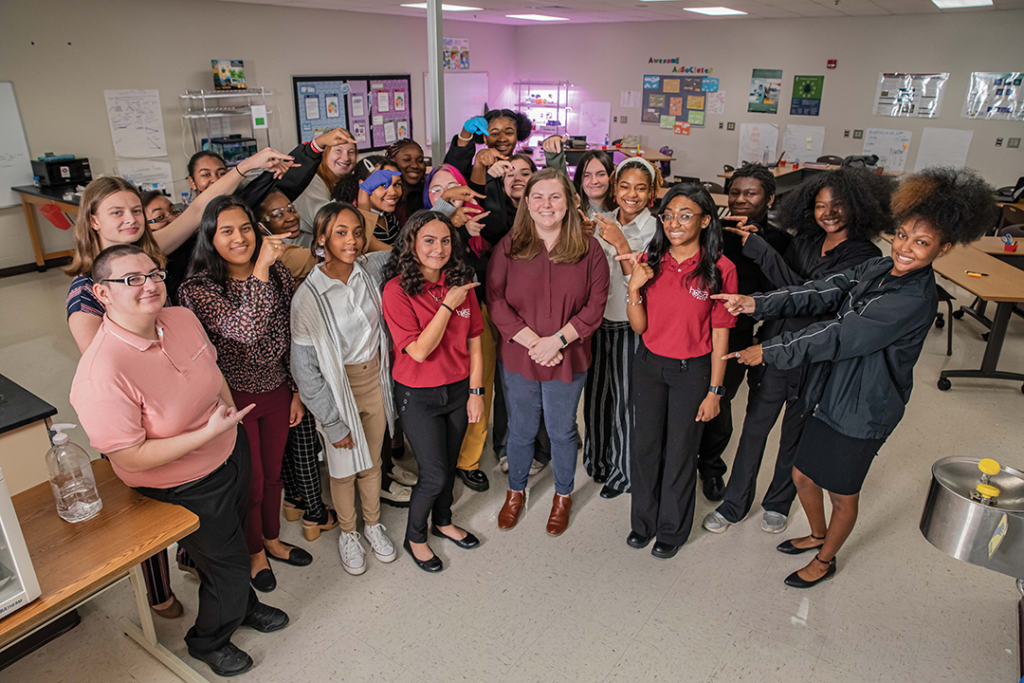Clean water remains a luxury with which millions across the globe are unfamiliar. The Newton County Water and Sewerage Authority is charged with safely providing the life-giving resource to unincorporated Newton County and surrounding communities.

It is clear, life-giving and available at the touch of a finger; and most of us never think about it unless it is gone.
It is easy to take for granted—clean water flowing freely through our faucets—but it is a luxury that millions of people never know. According to the Centers for Disease Control and Prevention, approximately 780 million people worldwide lack access to an improved water source.
An additional two billion people across the globe live without an improved sanitation system, such as flushing toilets or pit latrines.
Having access to clean water is one reason that waterborne illnesses are rare in the United States, but exactly how does this resource arrive safely in our Newton County homes and businesses? Mike Hopkins, the executive director of the Newton County Water and Sewerage Authority, explains the complicated process behind delivering clean drinking water to unincorporated Newton County and surrounding communities.
In the Beginning
“Newton County’s water system is unique compared to most water authorities in Georgia,” Hopkins said. “With most water authorities, one organization manages distribution, supply and treatment. In Newton, the distribution is managed by a separate state entity in cooperation with the county.”
This separation means that the NCWSA receives no tax dollars, according to Hopkins: “All revenue comes from the rates and fees we receive from our 24,000 customers.”
“We take our job and its mission seriously. We are public servants and we truly want to provide the best possible water services to each and every customer.”
Mike Hopkins, Newton County Water and Sewerage Authority Executive Director
Newton’s water originates from several county sources and reservoirs. The original pumped storage reservoir for NCWSA is City Pond. Along with the nearby—and much larger—Lake Varner, the two reservoirs supply nine wholesale customers. Each of these distributes and retails water to their individual consumers. Ultimately, NCWSA water reaches some 65,000 people through these wholesale customers:
• NCWSA
• Walton County B.O.C.
• City of Covington
• City of Oxford
• City of Porterdale
• City of Mansfield
• City of Newborn
• Jasper County Water and Sewer Authority
• Alcovy Shores Water Authority
Natural sources of water, including rain and the Alcovy River, help keep Lake Varner at the level needed to fulfill its full-service potential.
THE WATER THAT IS ON EARTH NOW IS THE SAME WATER THAT HAS BEEN HERE SINCE THE EARTH WAS FORMED–THAT MEANS WE DRINK THE SAME WATER THAT DINOSAURS DRANK!
Keeping it Clean
If you have ever skipped stones across City Pond, gone fishing at Lake Varner or kayaked along the Alcovy River, you may have wondered how the water in which you play becomes safe to drink. Untreated, or “raw,” water is pumped from the river and reservoirs to the Cornish Creek Water Treatment Facility or the Williams Street Water Treatment Facility for purification.
Substances removed from water during the treatment process include bacteria, viruses, fungi, algae and excess minerals such as manganese and iron. Filters and safe chemical processes also remove unpleasant odors and flavors from the drinking water.
Meeting the Demand
Treated water is pumped to ground storage tanks or one of the six elevated tanks located around Newton County. These storage tanks range in capacity from 250,000 to 4,000,000 gallons. “Because these water tanks are typically sited where there is demand, the turnover rate is constant,” Hopkins said. This means that water never sits stagnant in tanks but flows continuously to meet customers’ needs.
“Demand for water is much higher when the growing season begins,” Hopkins said.
Drought conditions often occur during these high-demand summer months, which can sometimes result in water-use restrictions.
When the water leaves an elevated storage tank, gravity pushes it through miles of pipes that get progressively smaller, ranging in size from 30 inches in diameter to a mere two inches wide. It takes 629 miles of water mains to deliver 1.836 billion gallons of water to nearly 24,000 service connections each year. The smallest pipes lead into your home, and the remaining water pressure within them is the force that propels the water out of your faucet.
As Newton County and surrounding areas continue to grow, the NCWSA has a plan in place to keep up with increased demand. The Capital Improvement Plan provides for additional tanks, pipes and other infrastructure to increase the reach of the NCWSA as the number of residents grows.
Averting Crisis
When weather or other factors cause interruptions, the NCWSA is ready to restore service as soon as possible.
“Most events are a matter of switching over to backup power,” Hopkins said. “The NCWSA has spent around $4 million in redundant systems to protect the systems.”
Although big storms can cause serious water interruptions, infrastructure investment has come to Newton County’s rescue before.
“The 2009 flood was the most serious event in recent memory,” Hopkins said. Two years earlier, the NCWSA completed a new water reclamation facility at a higher elevation. “If not, the 2009 event would’ve been catastrophic.” During Summer 2018, a failure at a major water pumping station threatened widespread outages. “Not one customer went without water,” Hopkins said, a tone of pride in his voice. Smaller, non-weather-related water service issues happen on a routine basis, but the NCWSA’s regular and after-hours work crews stand ready to fix the problems.
Working Behind the Scenes
It takes a wide range of workers to continually deliver fresh water to all NCWSA customers. Job titles at the water authority include administrators, engineers, technicians, inspectors and customer service agents. The NCWSA’s 51 full-time employees are committed to the authority’s mission statement, which reads: “Our mission is to provide the Authority’s customers with reliable and safe drinking water and to provide sewer services in an environmentally responsible and fiscally sound manner while focusing on cost-efficiency and value-oriented service. Providing the best possible services will always be the number one priority for the Newton County Water [and] Sewerage Authority.”
Hopkins does not take the responsibility lightly. “We take our job and its mission seriously,” Hopkins said. “We are public servants and we truly want to provide the best possible water services to each and every customer.”
Click here to read more stories by Kari Apted.




